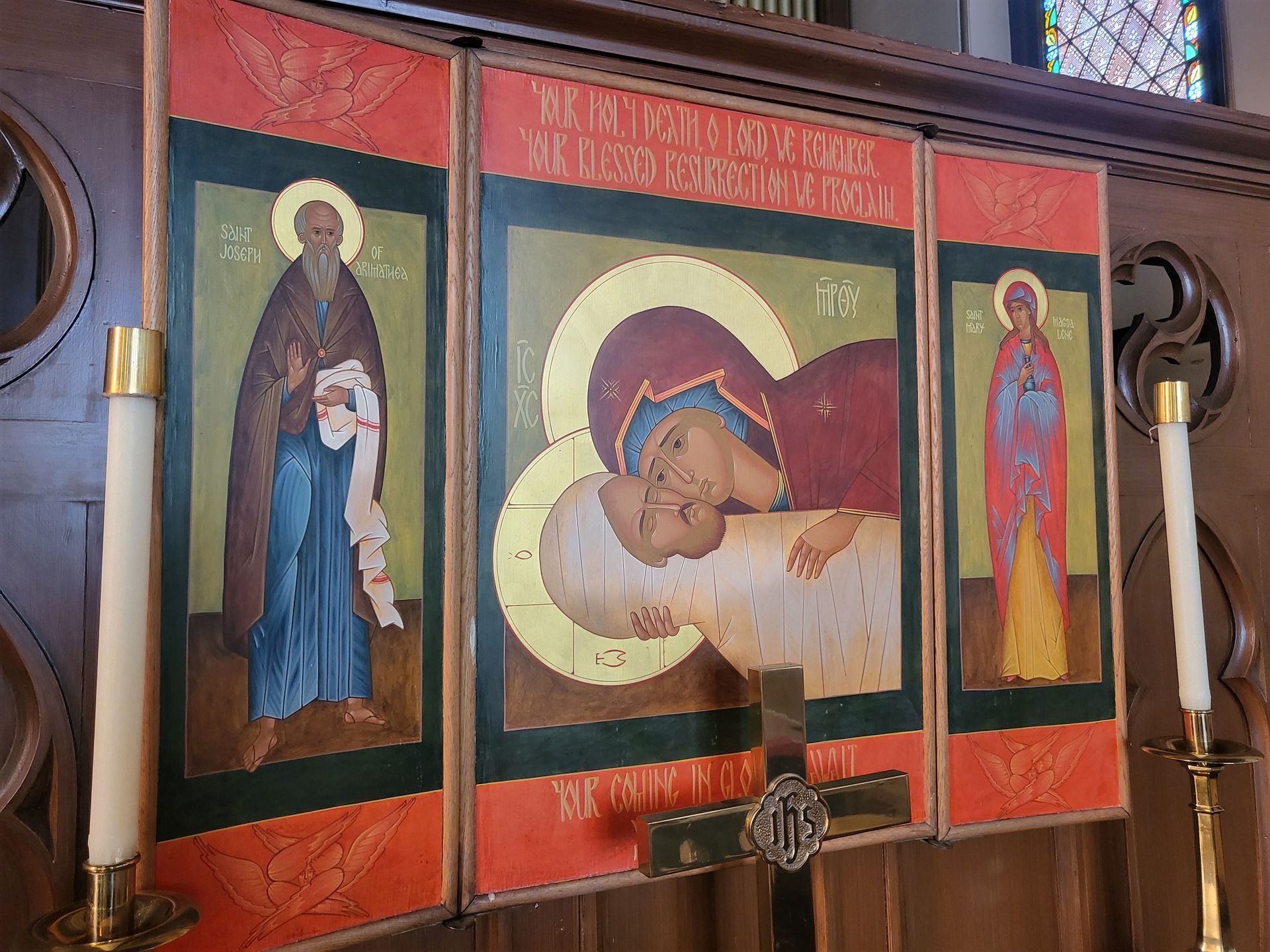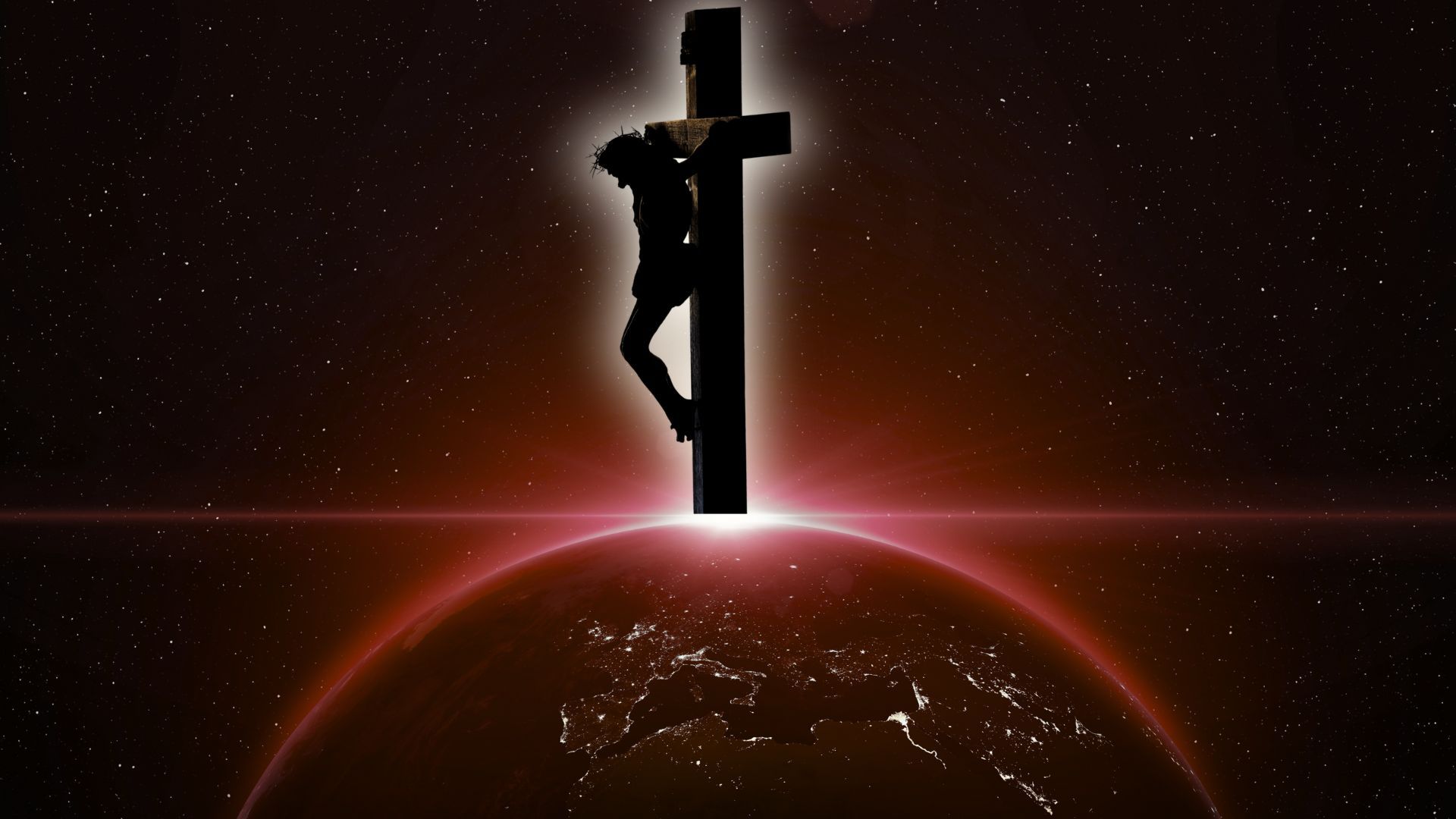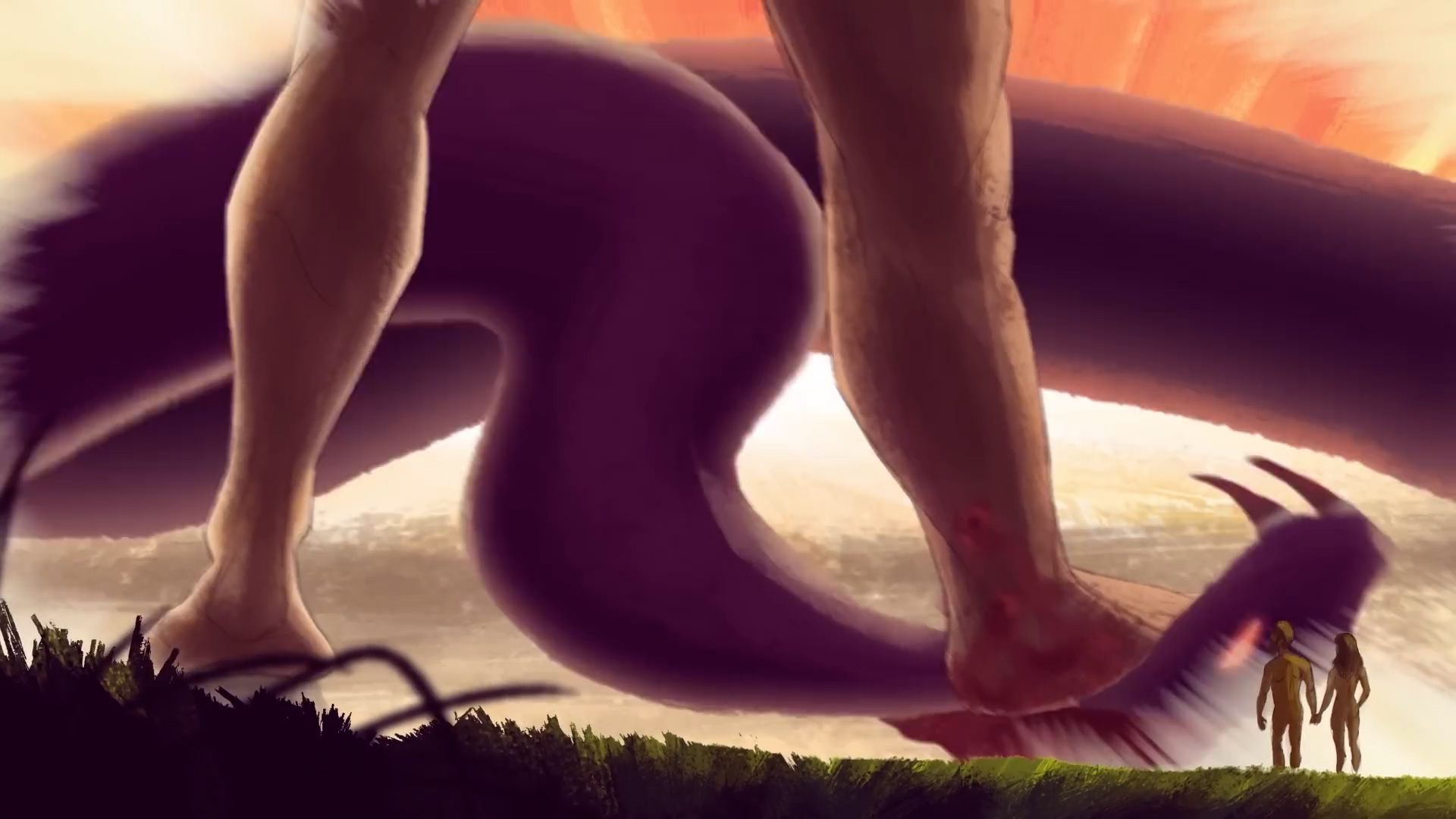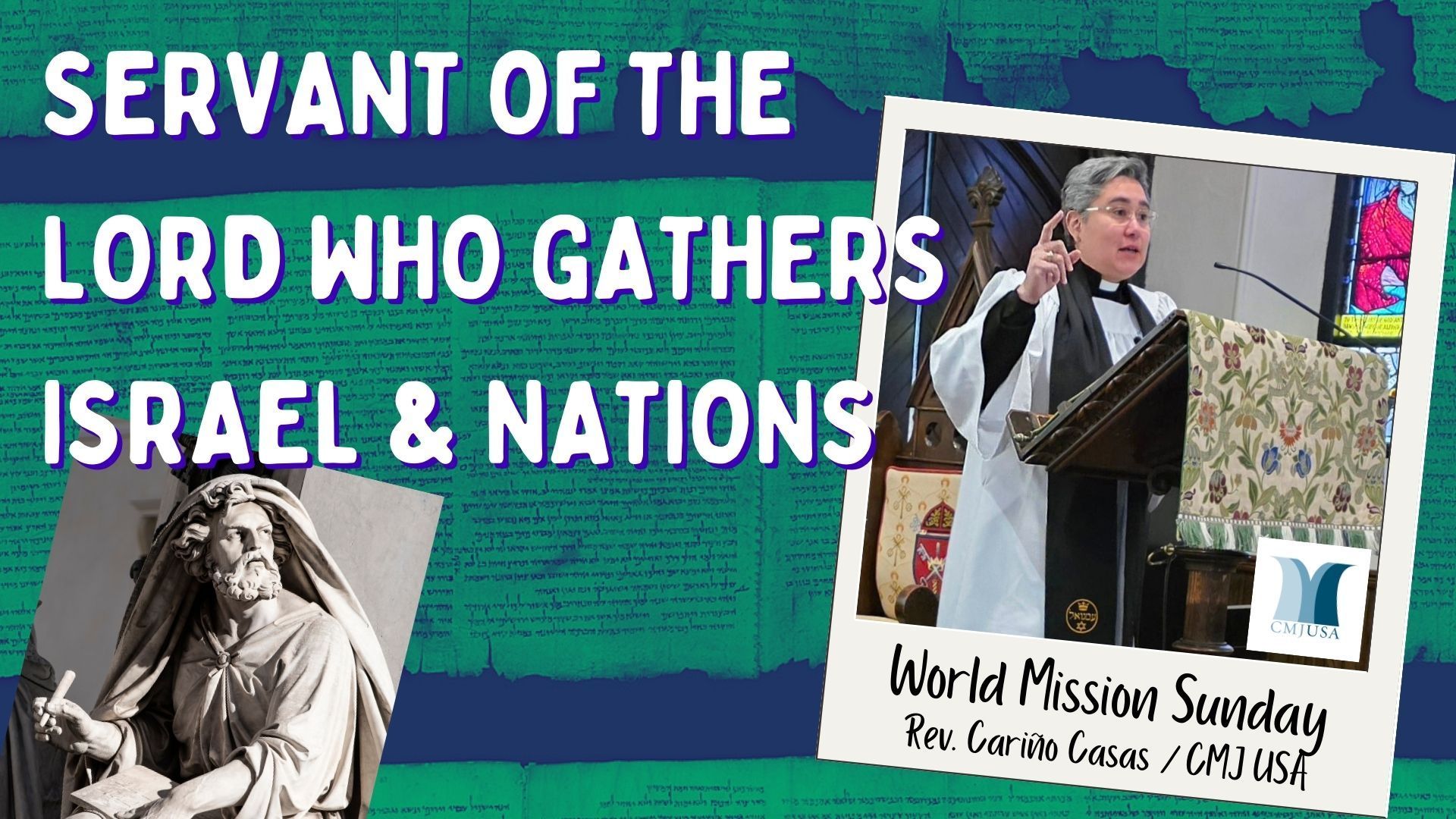Resurrection makes no sense without death
A meditation on the death of the Messiah for Good Friday
Jesus is dead!
You may be thinking, ‘But Sunday is coming!’ Yes, but let’s slow down.
It’s Good Friday or the Great & Holy Friday or Black Friday.
We’re here at church to sit in the reality of death for a day. If it didn’t matter, we wouldn’t mark it on the calendar. Resurrection makes no sense without death. We have no idea what resurrection is if we do not know and experience death.
We cannot fully enter into the joy of Resurrection Sunday without going deep down into the darkness of Good Friday. I pray that you don’t just bear with me but come with me into this Good Friday contemplation.
The church where I regularly worship has an icon we affectionately call Dead Jesus. When I first started attending the church, it was the only altar icon we had. See how Jesus is wrapped in burial cloths and how his mother Mary lovingly embraces her dead son.

Dead Jesus was up nearly year-round the first years I was at this church. One of the few times the icon was put away was for the seven weeks of Easter because it’s hard to celebrate the Resurrection when you’re looking at Dead Jesus.
Happily, in the past few years, the church has acquired other depictions of Jesus, like Resurrected Jesus and The Last Supper. Still, at Lent, Dead Jesus comes back out and is with us through Holy Week.
Who wants to see Dead Jesus? I didn’t at first. I said: He’s not on the cross anymore. The tomb is empty. Jesus is alive, sitting at the right hand of the Father. All true.
Then I watched colon cancer snuff out the life of my best friend. Suddenly, I needed to see Dead Jesus. I needed to see Mary holding Jesus’ dead body. I needed to remember that Jesus knows death and knows it intimately.
So let us contemplate Jesus’ death tonight and what it means for us.
What is death? The ceasing of life.
Where does death come from?
Genesis 2:15 - The Lord God took the man and put him in the garden of Eden to work it and keep it. 16 And the Lord God commanded the man, saying, “You may surely eat of every tree of the garden, 17 but of the tree of the knowledge of good and evil you shall not eat, for in the day that you eat of it you shall surely die.”
It’s not that the fruit of that one tree was physically poisonous. It was the distrust of God’s word that brought death. God gave them one guideline: Don’t eat from the one tree. Everything else is freely available, but not that one tree.
But when Eve and Adam believed the lies of the serpent, they distrusted God and broke their relationship with him. God is the source of all life, eternal life. When Eve and Adam ate from the Tree of Knowledge of Good and Evil, they cut themselves off from God.
And they began to age. The body and mind began to break down, if slowly.
In short, as Paul says, “The wages of sin are death.” (Rom 6:26). Adam and Eve’s sin – their distrusting God and seeking wisdom of themselves – that rebellion brought death into the world (Rom 5:12).
But God gives Adam and Eve (and the snake) a hint of the antidote to death.
In Genesis 3:15, God tells the snake, “I will put enmity between you and the woman, and between your offspring and her offspring; he shall crush your head, and you shall strike/bite his heel.”
A Son of Eve will crush the snake, and the snake will bite the son’s heel.
So, the Son of Eve will kill the snake, avenging his tempting and deceiving Adam and Eve. But the snake will likely get in a fatal bite on this Son of Eve.
Who is this Son of Eve? This reference to ‘the seed of the woman’ or the Son of Eve is unusual and unique. It appears nowhere else.
I imagine most of us here know how babies are made: a seed from a man fertilizes an egg from a woman. There’s no other way to make babies. Women do not have seed.
But then the Gospel of Matthew opens with a strange story of an angel telling a young, unmarried, chaste woman that she will have a baby without having known a man. Unlike Eve, who didn’t trust God’s instruction to Adam in the garden, Mary believes and trusts what God says through the word of an angel.
Is Mary’s son Jesus the ‘seed of the woman,’ the Son of Eve?
Go with me to John 12.
In this chapter, Passover is coming. Jesus has announced himself as King of Israel by riding a donkey into Jerusalem. The crowds are pressing him, asking him questions.
And Jesus says, “Now is the judgment of this world; now will the ruler of this world be cast out. And I, when I am lifted up from the earth, will draw all people to myself” (John 12:31-32).
“Now will the ruler of this world be cast out.” Early Jewish sources show that when Jesus’ audience heard “ruler of this world,” they understood this to be Satan, “the prince of injustice.”[1] This is our oldest enemy, the deceitful Serpent in the Garden who told our first parents – Adam and Eve – and still tells us today that we can be self-sufficient and all-knowing, that we don’t need God’s help to live good, productive lives.
“Now will the ruler of this world be cast out.” It’s time to crush the serpent from Genesis 3!
How, Jesus?
“And I, when I am lifted up from the earth, will draw all people to myself.”
The phrase “lifted up” had been cryptic to me for many years. We see it also in John 3 where Jesus references an obscure Bible story about an icon of a snake.
“And as Moses lifted up the serpent in the wilderness, so must the Son of Man be lifted up, that whoever believes in him may have eternal life.” (John 3:14)
Lifted up… that is one word in Greek. Where else do we see this word? In Isaiah 52:13 in Israel’s Greek translation of the Prophets.
Behold, my servant shall act wisely;
he shall be high and lifted up,
and shall be exalted.
As many were astonished at you—
his appearance was so marred, beyond human semblance,
and his form beyond that of the children of mankind—
so shall he sprinkle many nations. (Isa 52:13-15a)
So, this Servant of God in Isaiah 52 and 53 will suffer some severe trauma. He will be unrecognizable as a human being. If you keep reading, you see that this servant dies a violent death and is buried in the grave of a rich man. In the grave of Joseph of Arimathea.
“So shall he sprinkle many nations.” The word ‘sprinkled’ here is the same used in Leviticus concerning different sacrifices.
Sprinkled water and blood speak of cleansing. Water cleanses from death. Blood cleanses us from sin (cf. Isaiah 53:10).
Through suffering, this Servant cleanses the nations – the whole world – from death and sin. Through this cleansing, Jesus “will draw all humanity to himself.”
This word “draw” has the sense of dragging. Jesus will drag mankind from the grip of Satan, who has long tried to keep his clutches on us.[2]
But in the process, Jesus dies.

Death. We’re back at death.
The night before my friend died, we all held vigil at her bedside. Her breathing had become labored. We were sure she would pass during the night. So we waited.
It was agony to listen to her fight for breath all night. I sat in a far corner of the hospice room as long as I could, praying. Her sister and her husband stayed by her side all night.
As I listened to the death rattle emanate from my best friend, I thought of John the Beloved standing beneath Jesus’ cross.
If Jesus had a best friend, it was John. John was in the inner circle with his brother James and Peter. At the Last Supper, we see that John is comfortable enough with Jesus to lay across his chest. Then we see John at the cross, where the other 11 were not.
John, too, listened to his best friend fight to breathe. The brutality of the cross is that it suffocates you as you hang naked on a public road. The weight of your own body hanging on your outstretched arms makes it hard to breathe. The excruciating nail in the feet makes it harder and harder to push up and relieve the pressure. John (and Mary) watched for hours as Jesus painfully tried to breathe… until he didn't.
Have you experienced death? Have you watched a loved one die? Has death taken someone dear from you?
When we see our loved ones suffering, when death robs us of their presence, we want a villian to blame. It must be God. God is so cruel. If God loves, why do we suffer? He must be a sadist![3]
Certainly not!
God is not a villain. He created all we see and he called it good (Gen. 1-2). His character is always to have mercy (Exod 34:6-7). He also dares to step into our pain.
How do we know? Christmas and Easter and all that transpires in between tells us God feels our pain.
God, the all-powerful creator of the universe, became a human completely vulnerable to every physical and emotional wound we suffer. Jesus certainly experienced the death of his surrogate father Joseph. He was likely mocked as illegitimate[4] for most of his life. His own brothers mock his call and ministry (John 7:2-5). He is betrayed by Judas, disavowed by Peter, and abandoned by nine other disciples. Of the 12 men, only John is faithful to the end.
Jesus’ body was torn to shreds by the Roman cat o' nine tails. He was beaten and bruised by Roman and Jewish fists. Thorns and nails pierced his skin.
No, God cannot be a sadist. He doesn’t revel in our pain. Instead, he enters it. He made himself as vulnerable as a fetus in his mother’s womb and lived life as the son of a poor carpenter.
When death came for him in the form of a band of soldiers at Gethsemane, Jesus surrendered. He had already said, “My Father, if it be possible, let this cup pass from me; nevertheless, not as I will, but as you will” (Matt 26:29) Jesus suffered the deep sorrow of knowing death was coming. Yet, once he surrendered to the Father’s will, he moved in peace and confidence.
Why? To finally crush the head of that Snake! To show that he loves you. He loves me.
2 For he grew up before him like a young plant,
and like a root out of dry ground;
he had no form or majesty that we should look at him,
and no beauty that we should desire him.
4 Surely he has borne our griefs
and carried our sorrows;
yet we esteemed him stricken,
smitten by God, and afflicted.
5 But he was pierced for our transgressions;
he was crushed for our iniquities;
upon him was the chastisement that brought us peace,
and with his wounds we are healed.
6 All we like sheep have gone astray;
we have turned—every one—to his own way;
and the Lord has laid on him
the iniquity of us all.
7 He was oppressed, and he was afflicted,
yet he opened not his mouth;
like a lamb that is led to the slaughter,
and like a sheep that before its shearers is silent,
so he opened not his mouth.
8 By oppression and judgment he was taken away;
and as for his generation, who considered
that he was cut off out of the land of the living,
stricken for the transgression of my people?
9 And they made his grave with the wicked
and with a rich man in his death,
although he had done no violence,
and there was no deceit in his mouth.
10 Yet it was the will of the Lord to crush him;
he has put him to grief;
… his soul makes an offering for guilt …
he poured out his soul to death
and was numbered with the transgressors;
yet he bore the sin of many,
and makes intercession for the transgressors. (Isaiah 53)
Jesus bore the sin of many and he prays for us sinners even today.
Let us tonight, stand under the cross with John, and watch Jesus die. Let us, with Joseph of Arimathea and Mary, hold the body of dead Jesus and grieve and mourn for his death, for our sin that caused him to suffer such pain and horror.
He did it for you. He did it for me. Because he loves us.
Greater love has no one than this, that someone lay down his life for his friends. (John 15:13)
We cannot know what resurrection is without experiencing death. Yes, Sunday is coming. Joy is coming Sunday morning. But let us sit with Jesus’ death tonight. Let us remember the heavy cost of that joy. How precious and expensive is our healing, our forgiveness, our joy. Thank you, Jesus.
Let us pray.
Lord Jesus Messiah, Son of the living God, we pray you to set your passion, Cross, and death between your judgment and our souls, now and in the hour of our death. Give mercy and grace to the living; peace and rest to the dead; to your holy Church unity and concord; and to us sinners everlasting life and glory; for with the Father and the Holy Spirit you live and reign, one God, now and for ever. Amen.
Footnotes
[1] Hermann L. Strack and Paul Billerbeck, ed. and trans. Jacob N. Cerone, A Commentary on the New Testament from the Talmud & Midrash Vol. 2, (Bellingham, WA: Lexham Press, 2022), 634.
[2] John Chrysostom, “Homilies of St. John Chrysostom, Archbishop of Constantinople, on the Gospel of St. John,” in Saint Chrysostom: Homilies on the Gospel of St. John and Epistle to the Hebrews, ed. Philip Schaff, trans. G. T. Stupart, vol. 14 of A Select Library of the Nicene and Post-Nicene Fathers of the Christian Church, First Series (New York: Christian Literature Company, 1889), 250.
[3] Even the great C.S. Lewis, who ministered Christ to all of Britain in the midst of World War II, felt God must be a sadist during one of those painful stab waves of grief after the death of his wife Joy. See C.S. Lewis, A Grief Observed, various editions.
[4] See Jesus’ argument with Pharisees about parentage in John 8:12-59, particularly v. 41: “...They said to him, ‘We were not born of sexual immorality…’”
Blessed by this post? Ready to sow into the work of CMJ? No gift is too small. we are blessed by your partnership.




